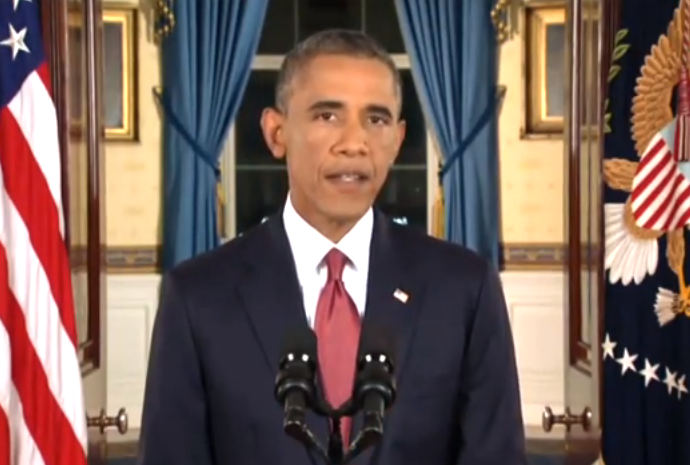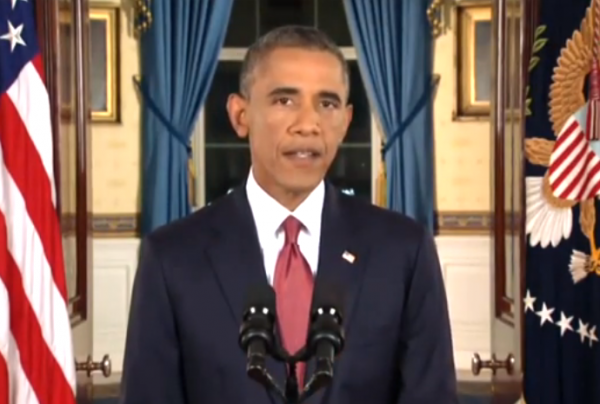 Congress put aside its fierce partisan bickering and came together to pass H.R. 2 –the Medicare Access and CHIP Reauthorization Act of 2015 (MACRA). This week President Obama took the opportunity to sign the legislation package into law.
Congress put aside its fierce partisan bickering and came together to pass H.R. 2 –the Medicare Access and CHIP Reauthorization Act of 2015 (MACRA). This week President Obama took the opportunity to sign the legislation package into law.
The congressional fix repeals and replaces the flawed Medicare physician reimbursement system known as the sustainable growth rate (SGR). For the past 13 years, physicians have faced the possibility of an arbitrary cut in their Medicare payments unless congressional lawmakers passed a so-called “Doc Fix” Medicare bill. Since 2003, Congress has passed 17 short-term bills to block these cuts in Medicare doctors’ fees that were called for under the existing law.
On April 14, the Senate passed the MACRA by a whopping 92 to 8 (the House passing its version of the bill in late March by a large margin, 392-37). Two days later, at an outdoor signing ceremony in the Rose Garden, President Obama signed the legislation into law, with the House bill brokers, Speaker John Boehner (R-Ohio) and House Minority Leader Nancy Pelosi (D-Calif.) in attendance. .
A Permanent Fix Prevents Payment Cuts
Just hours before a cut in reimbursement that would take place this week, a rare bipartisan congressional effort prevented a 21 percent cut in Medicare payments to occur. It’s a permanent fix. And the new law extends the Children’s Health Insurance Program, which has provided coverage to millions of American children.
At the signing, Obama called the passage “a milestone for physicians, and for the seniors and people with disabilities who rely on Medicare for their health care needs,” noting that it would also strengthen the nation’s health care delivery system for the long run.
Obama stated this new law “creates incentives to encourage physicians to participate in new, innovative payment models that could further reduce the growth in Medicare spending while preserving access to care.”
According to the Center for Medicare Advocacy (CMA), a national nonprofit, nonpartisan law group that provides education, advocacy and legal assistance to older people and people with disabilities, the estimated cost of the new law is roughly $214 billion over 10 years. CMA says roughly half (approximately $35 of the total $70 billion over 10 years) will come from Medicare beneficiaries through changes that will increase their out-of-pocket costs for health care.(through means testing of higher-income Medicare beneficiaries, increased Part B premiums, and added deductibles to Medigap plans purchased in the future.”
CMA adds that the nation’s pharmaceutical and insurance industries were not required to pay for any of this law, although doing so would have paid for a major portion of the SGR replacement.
Crossing the Aisle
“The Sustainable Growth Rate formula threatened the stability of the Medicare program, and I’m glad we were able to pass a long-term solution to address it. I believe it was a reasonable compromise that will provide financial certainty to health care providers while protecting benefits for low and middle-income seniors,” said Senator Sheldon Whitehouse. The Democratic senator, a member of the Senate Special Committee on Aging, notes that the new law will “boost efforts to pay providers based on quality and outcomes of care, an area where Rhode Island has been a leader.”
Rep. David N. Cicilline gave his take on the new law. “Fixing the Sustainable Growth Rate formula will help ensure that more than 180,000 Rhode Islanders who receive Medicare benefits can keep their doctor and continue to receive quality, affordable health care when they need it, the Democratic Congressman said, noting that “We need to see more bipartisan solutions in Congress like this one.”
Finally, Rep. Jim Langevin, adds, “Although this compromise wasn’t perfect, I am pleased that Congress could come together in a true display of bipartisanship to reach an agreement that increases access to quality heath care for our most vulnerable seniors, provides stability and predictability for physicians and extends the crucial Children’s Health Insurance Program.”
On the Backs of Medicare Beneficiaries
Aging advocacy groups, including the Center for Medicare Advocacy and AARP, failed in their attempts to improve the Senate bill Medicare beneficiaries, including a repeal of the annual therapy caps, raising eligibility standards for low-income programs and permanently extending outreach and education funding for critical programs aimed at low-income beneficiaries. The Senate bill passed without amendments.
While many gave thumbs up to the new law, Max Richtman, president and CEO of the Washington, DC-based National Committee to Preserve Medicare and Medicaid, sees big problems with MACRA.
“The Senate ‘Doc Fix’ vote has traded one bad policy for another, shifting the costs of Congress’ failed Medicare payment formula for physicians to seniors who can least afford to foot that bill. Contrary to claims by supporters, on both sides of the aisle, this ‘doc fix’ will hit millions of seniors who aren’t ‘wealthy’ by any stretch of the imagination. Seniors at all income levels who are already paying steep premiums for Medigap plans to help control their health care costs will now be hit with even higher costs. 46 percent of all Medigap policy holders have incomes of $30,000 or less, he said.
“Medicare beneficiaries will also be forced to contribute nearly $60 billion in premiums over the next decade thanks to passage of this so-called ‘fix,’” Richtman added. “It’s no surprise that conservatives applaud this legislation as ‘the first real entitlement reform in two decades’ because it fulfills their political goal of shifting costs to seniors, cutting benefits and expanding means-testing to push Medicare further and further away from being the earned benefit seniors have long valued and depended on. Trading a bad deal for doctors for a bad deal for seniors is not a legislative victory and it is a surprising move from so many in Congress who have previously vowed to protect Medicare from harmful benefit cuts and seniors from cost-shifting.”
AARP CEO Jo Ann Jenkins also expressed strong disappointment in the Senate not passing an amendment that would have removed Medicare’s arbitrary cap on physical therapy, speech language pathology, and occupational services. “Many Medicare patients, particularly stroke victims and people with Parkinson’s and Multiple Sclerosis would have benefited,” says Jenkins. With a majority of the Senate agreeing with this amendment, Jenkins says that AARP will continue to lobby to remove the arbitrary coverage cap.
But, Jenkins sees the positives. “Passage of MACRA moves Medicare in the right direction toward better quality health care and greater transparency for patients. These changes will benefit Medicare beneficiaries, as well as physicians and other providers, hospitals, and the overall health care system,” she says.
.
Through the enactment of MACRA Congress put aside its political differences that made a permanent fix to a flawed law. If you can do it once, let’s see our lawmaker do this again, to provide improved programs and services to our nation’s older population.


